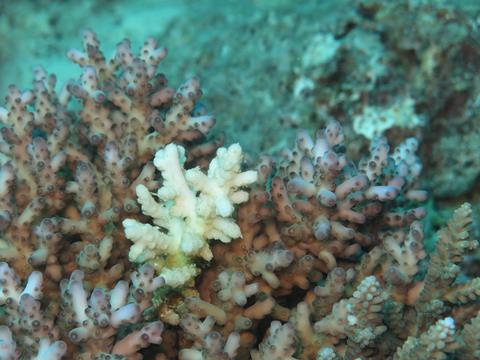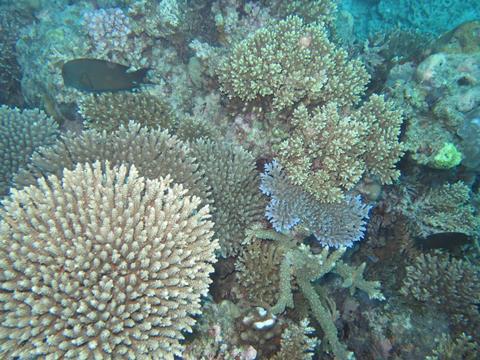No organism exists in isolation. They are coated, both inside and out, with complex communities of microorganisms, such as bacteria. In many cases, the individual organism and its associated bacteria have lives that are intimately intertwined.
These host-associated bacteria harbour immense genetic diversity but their metabolic capacity is typically host or environment specific. Perturbation shifts host microbiota from a healthy to a dysbiotic state, the result of which is a shift in the overall metabolic capacity of the system.
Microbiome manipulation
Microbiome manipulation can have two distinct goals: (1) restore the host- or environment-associated microbiota to their healthy state; or (2) enhance specific metabolic capabilities by selectively altering bacterial community composition. The manipulation of a host or ecosystem to achieve these goals can be done by: (a) inoculating with specific strains of beneficial bacteria, often termed probiotics; (b) transplanting microbiota from a system with the desired phenotype; or (c) through the addition of exogenous compounds that induce an alteration in microbiota community structure or function. The latter compounds are termed prebiotics. Microbiome manipulation has been used extensively across a range of systems to provide beneficial effects. Outcomes from microbiome manipulation include: resistance to pathogens and decreases in Alzheimer’s disease-related brain changes in mouse models; increased feed efficiency in livestock; reversal of the negative impacts of antibiotic administration in aquaculture; increased crop yield, nutrient use efficiency, salinity tolerance and disease suppression in agriculture; and bioremediation of oil spills on coral reefs.

Where do your research interests lie?
Given the precedence of microbiome manipulation across a diverse range of systems to achieve a broad scope of benefit, why not apply these principles to help mitigate the effects of climate change? The idea that intentionally manipulating indigenous microbiota can not only improve system health but also reduce the impacts of climate change is attractive to me. This is where my research interests lie.
Can you briefly describe your role and institute
I completed my PhD in Microbial Ecology in December 2020 and joined The University of Melbourne as a research fellow in March 2021. Working with Laureate Professor Madeleine van Oppen and Professor Linda Blackall (FAA FASM), my research focus is on identifying the functions of coral-associated bacteria. There have been some promising preliminary studies applying the principles of microbiome manipulation to corals and coral models, but in all cases the biological mechanism behind any potential beneficial effect is unclear. Using genomics approaches, we aim to gain ecological insights into these host-associated communities, specifically in the interactions between bacteria and their host. These data will lead to testable hypotheses and ultimately identification of bacterial function in hospite.
To accomplish this, I have successfully sorted bacteria from coral tissue for metagenomic sequencing, leading to the generation of bacterial metagenome assembled genomes (MAGs). Using these MAGs and their host coral genome, we are modelling metabolic interactions between host and symbiont. The ability to understand how bacteria can interact and potentially provide health benefits to their coral host paves the way to select individuals to be used in probiotic approaches to rescue corals from the effects of climate change.
While I have spent the beginning part of my academic career focusing on tropical marine systems, I have begun moving into terrestrial microbiology with the aim of manipulating rhizosphere-associated bacteria to enhance soil carbon sequestration. Scientists have long understood the potential to engineer plants with an improved capacity for carbon storage. More recently this concept has been discussed in the context of microbiome manipulation, but the application of carbon-sequestering bacteria in an agricultural setting has yet to come to fruition.

Service roles in science
In addition to my role as a research fellow at The University of Melbourne, I have leadership roles in several local and external committees. I am currently co-Chair of my departments Diversity and Inclusion committee and represent my early career academic colleagues on my School’s Executive Committee. Internationally, I sit on the International Society for Microbial Ecology Early Career Scientist Committee. I am currently the co-Chair for the Gordon Research Symposium on Marine Molecular Ecology, a member of the organising committee for the 2022 Australian Microbial Ecology Conference, and part of the local organising committee for the 11th International Symbiosis Society Congress.
What are the most exciting/rewarding aspects of your work?
There is something especially rewarding knowing that the research our group does aims to help protect coral reefs while we wait for legislative action to curb climate change. The value of coral reefs extends beyond what we can financially measure; they are integral to the identity of Indigenous People, an icon for many island nations, and a dream that someday our children and their children will be able to visit.
Some of my proudest accomplishments, however, come from mentoring and sponsoring students. My mentees include women, members of the LGBTQIA+ community, indigenous students, and people with disabilities. They have gone on to work in government and industry, continue with their postgraduate studies, publish scientific papers, and win competitive grants. Nothing beats the feeling of knowing that the future of science is better off in their very capable hands.











No comments yet